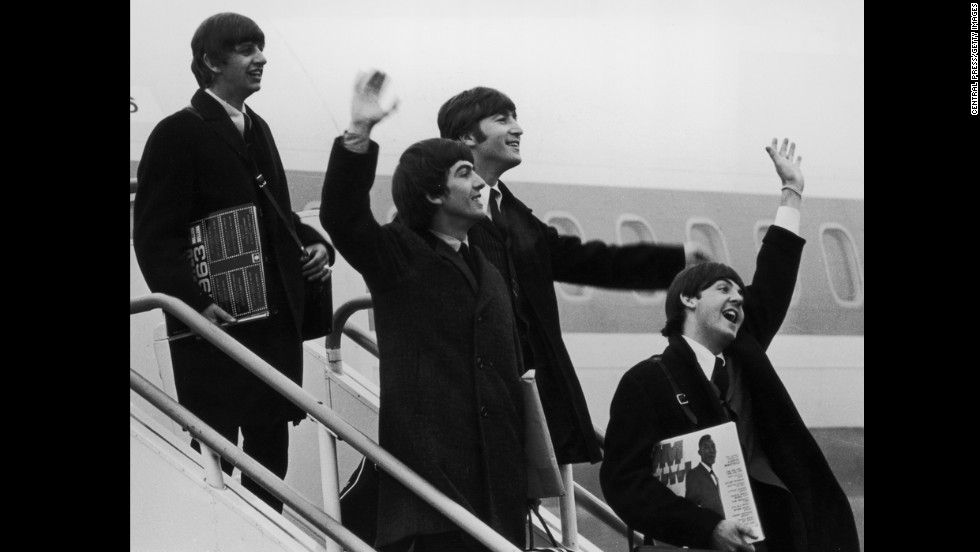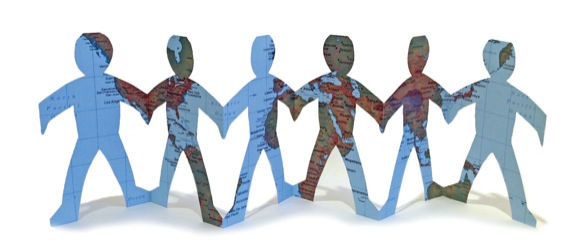The "Decade of Development" and the Need for Critical Global Citizenship
- Admin

- Apr 18, 2018
- 4 min read
Who and what is a global citizen? Those questions are inescapably linked to globalisation as a theory, history and project.
Great thinkers like Gayatri Spivak and Edward Said trace the development of dominating Western culture back to Greco-Roman days or when Britannia ruled the waves. But this short history is going to start with the age of another British Invasion.

For the modern nomad, the decade of the counter-cultural revolution might just be our mystical Golden Age. The Beatles visited India, students organised, Scott Mackenzie invites everyone out to San Francisco and suddenly it's the summer of love!
Yes, if you were in the right place, with the right privileges, orientation, and skin colour, the sixties would have been pretty groovy.
For the United Nations, and American allies, the nineteen-sixties was also the "Decade of Development."
In the years following the second World War, former colonies were rapidly negotiating or fighting for freedom. In the year 1960 alone, Nigeria, Somalia, Cyprus, Benin, Burkina Faso, Cameroon, Chad, Republic of the Congo, Ivory Coast, Gabon, Mali, Senegal, Mauritania, Niger, Togo Central African Republic, the Democratic Republic of the Congo and Madagascar achieved independence. That is averaging 1.5 decolonizing states a month!

The Cold War's battle of ideologies set the backdrop for emerging national identities, and the big Western powers needed a new way of relating to their former colonies. There was even a looming threat that some of what were then newly termed 'third world nations' would fall to Marxism (The horror!).
Conveniently, new theories of global development were emerging at the same to maintain a dominating status quo and the relationship between 'first,' 'third,' and 'fourth' worlds.
President Kennedy launched the Decade of Development from the UN buildings in New York in January 1961. Just days before, in his Inaugural Address, JFK announced:
"To those peoples in the huts and villages of half the globe struggling to break the bonds of mass misery, we pledge our best efforts to help them help themselves...not because the communists may be doing it, not because we seek their votes, but because it is right."
JFK's inauguration captured the hopeful spirit of the time. But caught up in the truly electric atmosphere of optimism, affluence and charitable outreach, most early global workers of the Decade of Development seemed to have forgotten to ask "the miserable hut people" what 'development' might look like on their terms. Or what ideologies are wrapped up in that rhetoric of Western paternalism and saviourism.
Video: In this funny and impassioned TED talk, Ernesto Sirolli proposes that the first step is to listen to the people you're trying to help.
And so, a growing vocabulary of development education, human rights education, and global citizenship emerged in the West. It was championed principally by the UN, and often narrowly understood in terms of economic growth. The framework of modernization based on neoliberal ideas still persist in conversations about sustainable tourism to this day.
There was, of course, pushback against the West's definition of development right away. Perhaps the most telling response to international volunteer service and notion of saving the developing world is a speech by Monsignor Ivan Illich's speech in 1968.
In his hard hitting, often sarcastic, address to Conference on InterAmerican Student Projects (CIASP) in Cuernavaca, Mexico, Illich finishes,
"If you have any sense of responsibility at all, stay with your riots here at home. Work for the coming elections: You will know what you are doing, why you are doing it, and how to communicate with those to whom you speak. And you will know when you fail. If you insist on working with the poor, if this is your vocation, then at least work among the poor who can tell you to go to hell. It is incredibly unfair for you to impose yourselves on a village where you are so linguistically deaf and dumb that you don't even understand what you are doing, or what people think of you. And it is profoundly damaging to yourselves when you define something that you want to do as "good," a "sacrifice" and "help."
I am here to suggest that you voluntarily renounce exercising the power which being an American gives you. I am here to entreat you to freely, consciously and humbly give up the legal right you have to impose your benevolence on Mexico. I am here to challenge you to recognize your inability, your powerlessness and your incapacity to do the "good" which you intended to do.
I am here to entreat you to use your money, your status and your education to travel in Latin America. Come to look, come to climb our mountains, to enjoy our flowers. Come to study. But do not come to help."
Standing in opposition to the belief that benevolent Westerners can save 'miserable hut people' with our economic and education
The initial imagined image of the perfect 'global citizen' is then supports and is supported by the dominating Euro-American corporate, industrial and military complexes. Despite the one-love, feel-good imagery of ultimate equality, you cannot seperate the language of of global citizenship from it's imperialist grounding politics.

pictured above: the lies of our capitalist overlords
Acknowledging this, critical global citizenship education enables a critique of even the most seemingly worthy policies and practices, empowering learners to access alternative perspectives and to experience global democracy through globally networked communities.































Comentários